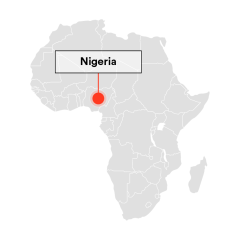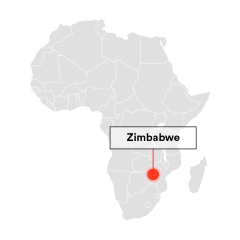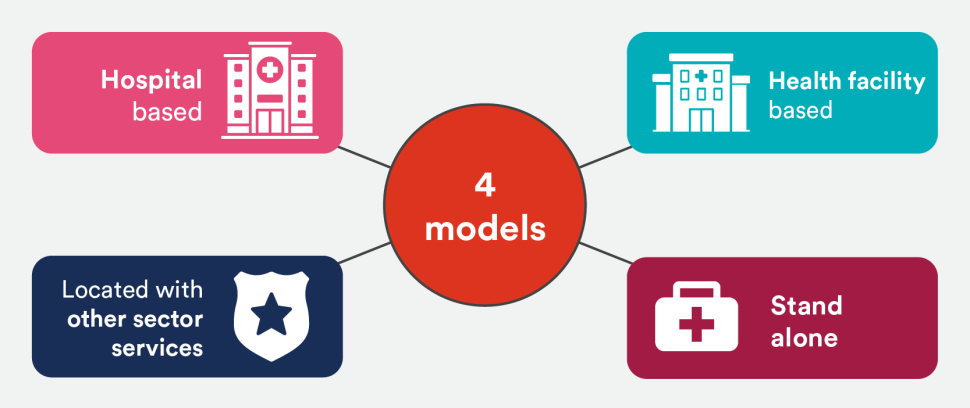Develop a One Stop Centre

Develop a One Stop Centre
Case Studies

In 2022, Spotlight Initiative, in partnership with Partnership for Justice, established the Nana Khadija Centre. This One Stop Centre is located in a Specialist Hospital within Sokoto State, Nigeria. The One Stop Centre provides rapid response and rehabilitation services to survivors of VAWG and is linked to a shelter that provides a safe environment for survivors who need a short-term place to stay. It also provides counselling services, medico-legal support, legal support and police support. They have a pharmacy that distributes necessary medicine to providers for free and they provide non-food items such as clothing, soap, sanitary pads, and bathing facilities. In 2022, over 500 survivors accessed services at the centre.
Collaboration with partners: In addition to providing immediate response services, the Nana Khadija Centre has collaborated with multiple partners to address the root causes and impacts of VAWG. For example, through collaboration with Neem Foundation, they are supporting the uptake of a Second Chance Education initiative, which improves survivors’ access to economic empowerment opportunities so they can provide for themselves and their families. They have also partnered with the National Union of Road Transport Workers (NURTW) who transport survivors for free or at minimum cost to the centre. In addition, they have partnered with the Federation of Women Lawyers and other paralegal civil society organisations to support the centre to provide legal services to survivors. In addition, they have partnered with and trained groups of community leaders and young people who volunteered to help identify, report and signpost survivors seeking services to the centre.
Child-friendly spaces: In 2022, around half of the survivors of VAWG who were seen by the Nana Khadija Centre were children. The centre has established child-friendly spaces to support child survivors who may take longer and require more reassurance and time before opening up about their experiences.
Opportunities for sustainability: The Nana Khadija Centre is the first One Stop Centre to be run 100% by the government, which demonstrates significant buy-in and opportunities for sustainability. In addition, Nana Khadija has successfully collaborated with numerous local partners, building a broad network of support from diverse stakeholders. This not only strengthens the impact of its ongoing work, but improves the likelihood of its continued success in the future.



In December 2019, Spotlight Initiative established a fleet of trucks equipped as Mobile One Stop Centres across Zimbabwe to help dismantle the barriers that survivors in remote and hard to reach areas faced to accessing VAWG response services. As part of this, they supported volunteers engaged in VAWG referrals by providing them with data and airtime packages, to enable continuous two-way communication between volunteers, survivors, hotlines, and Mobile One Stop Centre teams. They also supported the coordination of shuttle services and fuel to support survivors to travel to Mobile One Stop Centres.
Results and feedback from survivors and service providers: In 2022, a total of 5,862 survivors had accessed VAWG services through the Mobile One Stop Centres across 12 target districts, 78% of whom were women. Survivors who had accessed these services responded positively to the Mobile One Stop Centres, explaining that these had helped eliminate the challenges they faced to reaching static provincial and district-based services. Community volunteers working to raise awareness of VAWG and refer survivors to services also celebrated the introduction of Mobile One Stop Centres, explaining that they had significantly improved their capacity to conduct outreach and refer survivors to services.
Opportunities for scale up: The Mobile One Stop Centre approach is highly versatile and can be adapted to respond to an ever-changing context. For example, teams can modify the type of service provided (direct services or referrals to higher levels of care), they can change the location and frequency of visits, and they can coordinate with other mobile services in development and humanitarian contexts. This coordination could include vaccination campaigns, food distribution, WASH sensitisation points, and mobile health clinics.
Opportunities for sustainability: By engaging with the Government of Zimbabwe during the design and roll out of the Mobile One Stop Centres, Spotlight Initiative was able to generate Government buy-in which contributed to the effectiveness of the model and also enhanced opportunities for sustainability. These Mobile One Stop Centres are also run by nurses seconded from district hospitals, local police officers from specialised survivor units, and legal support officers from Zimbabwe. By engaging existing service providers from the local areas rather than individuals from different locations, these Mobile One Stop Centres are well placed to retain staff.








